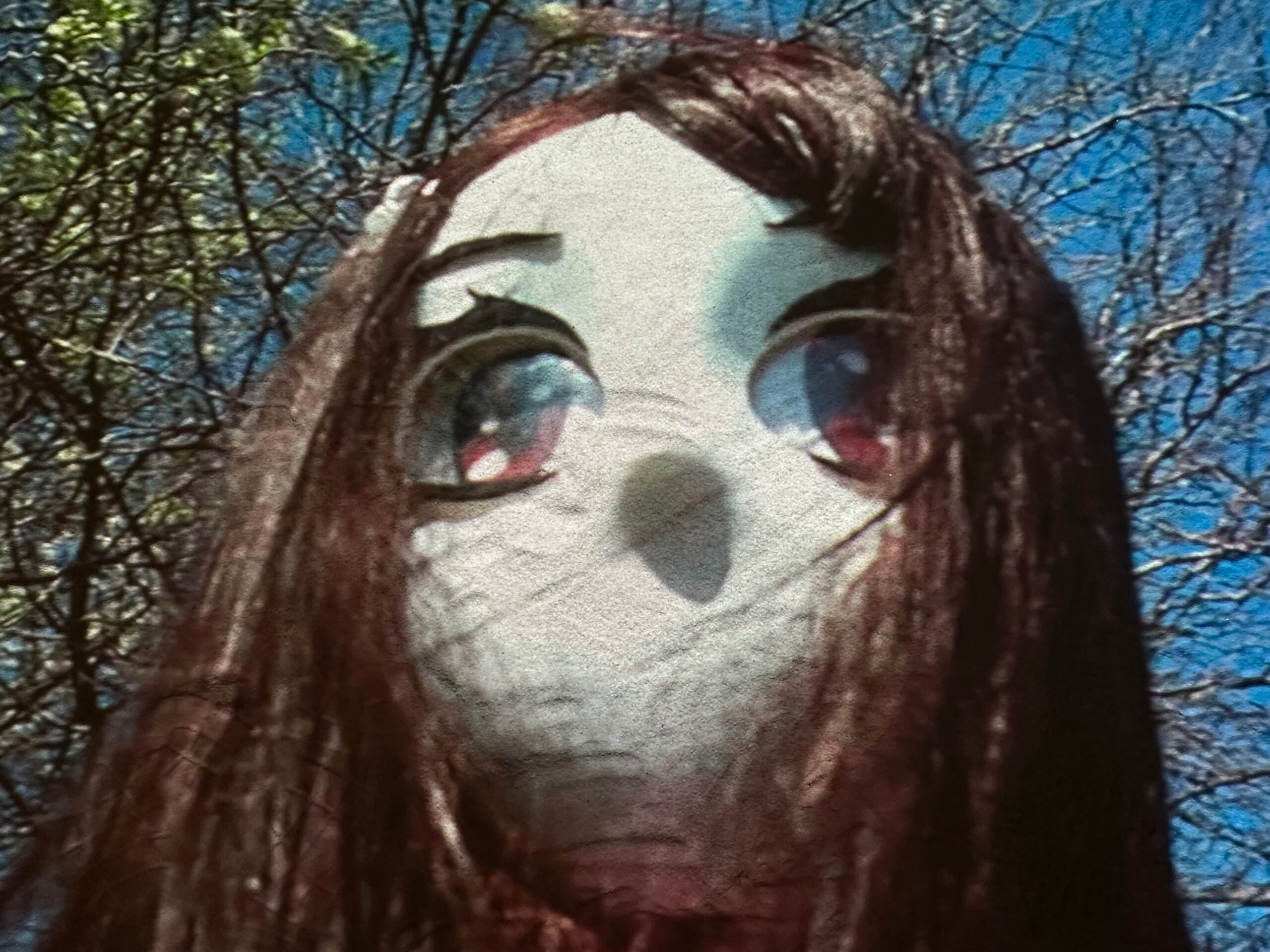Amid global crises and radical upheavals, the Ars Electronica Festival asks what role art can play—as a catalyst for new perspectives, as a space for reflection, and as a driving force for a collectively shaped future.
“When we no longer understand the world around us, when things change faster than we can comprehend them, we humans apparently tend to act irrationally—we pay more attention to how loud a voice is than to what it says, and we prefer to believe what we want to hear rather than what is actually true. We find ourselves back in Plato’s cave, worshipping the interpreters of shadows.”
With these words, Gerfried Stocker opens his curatorial statement for Ars Electronica 2025.
With this in mind, let’s take a look at the central themes of this year’s festival for art, technology, and society. First, we will outline the profound upheavals in politics, technology, and climate—and the uncertainty they trigger in us. Immediately afterwards, we will address the question of what role art can play in such a time of radical change. Unsurprisingly, this is the central question of this year’s festival. This is followed by chapters on democracy, digital sovereignty, the Green Deal, and education, which will be reflected upon and discussed in a wide range of programs during the festival.
This text is part of a series that will provide increasingly detailed insights into the Ars Electronica 2025 program in the coming weeks and months.
Where we stand
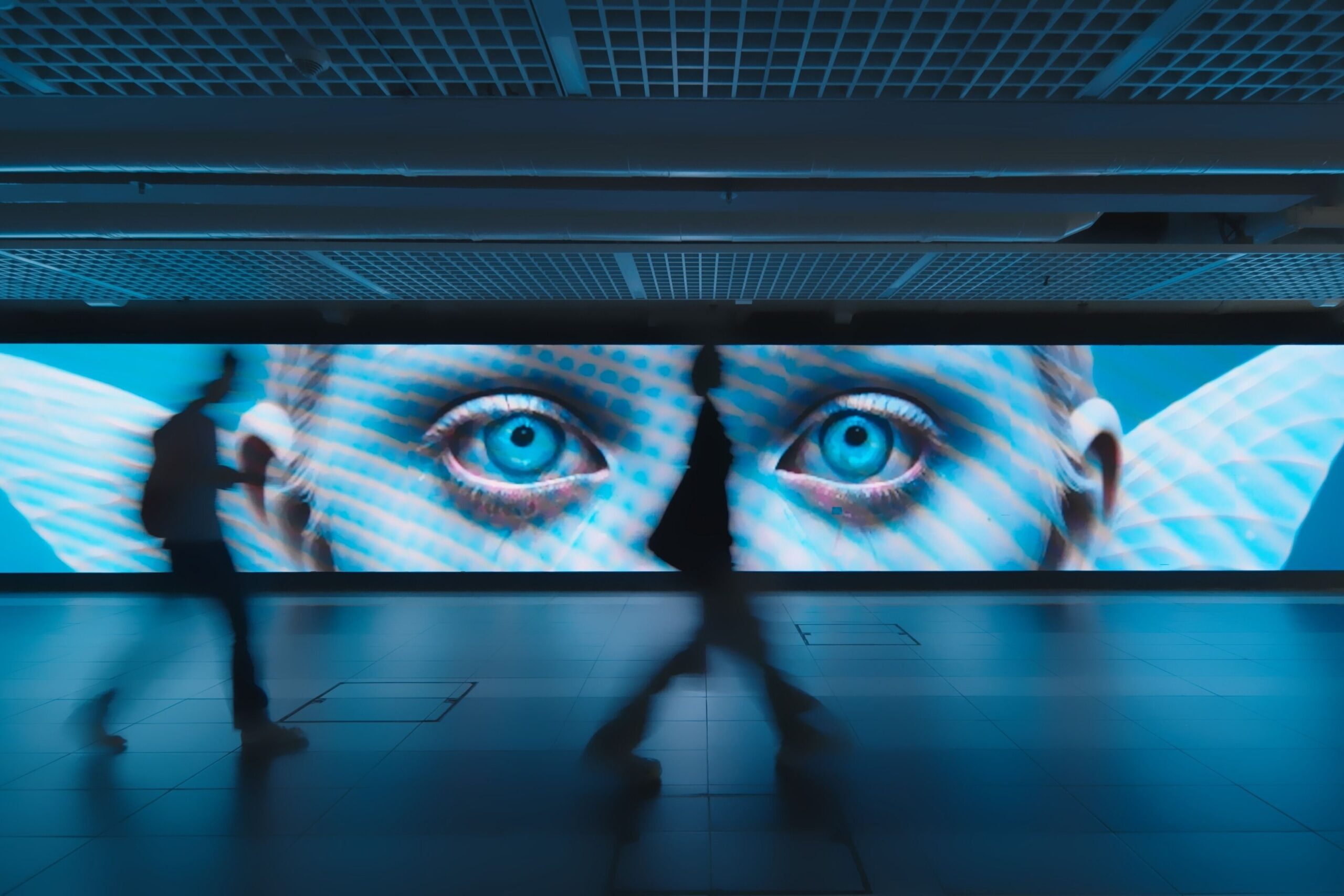
“Status quo, you know, is Latin for ‘the mess we’re in’.”
Ronald Reagan
Nothing remains of Francis Fukuyama’s 1989 prediction of “the end of history.” Instead, the Anthropocene seems to be turning into a disaster. Whether it’s the economy, society, politics, or the environment—everything is in crisis. Things we took for granted – such as the commitment to the transatlantic alliance, the Paris Climate Agreement, or liberal democracy itself – are being called into question.
In 2025, Xi Jinping and China will be viewed more positively than Donald Trump and the United States in more than 100 countries, according to a survey by the Democracy Perception Index. The world seems to have reached a tipping point—but is it a turning point, a collapse, or perhaps even a new beginning? Donald Trump has ended the US foreign policy established by Franklin D. Roosevelt, which was geared toward international cooperation, and replaced it with his “America First” agenda. At the same time, he is attacking liberal democracy and its institutions head-on. But radical forces are also flourishing in many European countries – in Hungary, France, Italy, Germany, Austria, Portugal, and Poland, there are increasingly open calls to destroy the system, weaken international alliances, or even dissolve them altogether. Meanwhile, authoritarian states such as China, Russia, North Korea, and Iran are striving for a multipolar world order that will secure their own spheres of influence. Politics based on “law rather than power” seems to be giving way once again to an attitude that Thucydides described in his “History of the Peloponnesian War”: “The strong do what they can, and the weak suffer what they must.”
Technological progress is unfolding at a breathtaking pace. More and more often, we find ourselves torn between utopian and dystopian visions of a world based on intelligent machines. And by “we,” we don’t just mean laypeople. While “AI accelerationists” such as Sam Altman, CEO of OpenAI, rave about a new “age of intelligence,” the “AI safety community” – AI researchers such as Eliezer Yudkowsky and Daniel Kokotajlo – warn that AI could herald the end of humanity. Others, such as leading computer scientist Ilya Sutskever, seem to be both “boomers” and “doomers,” while experts such as scientist and author Kate Crawford advocate for “AI ethics” and call for a focus on the negative consequences of AI here and now rather than hypothetical dangers in the distant future: the exploitation of people, the misuse of data, and negative consequences for the environment.
The fact is that the academic world currently plays only a minor role in the development of artificial intelligence. The field is dominated by a few powerful tech companies engaged in a relentless race. To win this race, unprecedented amounts of capital, data, computing power, and human expertise are being deployed—and any form of regulation is being prevented by any means necessary. In such a climate, societal interests are being neglected. It’s not about what benefits the general public, but about using “everything apps” to retain millions of users, generate billions in revenue, and ensure further growth, as journalist Matteo Wang writes. Instead of useful tools that meaningfully support our lives, we are threatened by a flood of bots that tell us what we want to hear, assist us with shopping, and collect even more information about us in the process. It is no longer us who control the technological mega-systems of our world, but rather the other way around: these systems control us. Because the power of the tech industry continues to grow, journalist and author Karen Hao sees a new empire emerging that exploits people and extracts resources worldwide—all under the guise of a “civilizing mission” that would bring progress and modernity.
Climate change is accelerating, leading to increasingly severe storms, floods, and droughts. These extreme events destroy livelihoods, fuel conflicts, and drive people from their homes. Although we have made great strides in green energy, the pace is far from sufficient. Looking to the future, our prospects for success are bleak: the rise of political forces that deny climate change raises fears that we will fail to seize the window of opportunity we still have to mitigate the crisis.
Our world is changing at an unprecedented pace. It is becoming more complex and unstable. Our future seems more uncertain than ever. This makes a festival like Ars Electronica all the more important, as it takes the status quo as its starting point and asks how art and culture can contribute to changing things for the better.
Living in a State of Uncertainty

“We may be living through times of unprecedented change, but in uncertainty lies the power to influence the future. Now is not the time to despair, but to act.”
Rebecca Solnit in The Guardian
We don’t like uncertainty. And for good reason. “We fear and avoid uncertainty because, in terms of survival, we need and want answers,” says journalist and author Maggie Jackson. “We need to solve problems; we need to know what to eat and what to do. That’s why, over the course of evolution, we’ve developed a stress response when we’re confronted with something new, unexpected, unclear, or ambiguous—our bodies and brains immediately go into alarm mode.”
Evolution has made our brains the perfect prediction machine. It not only helps us understand the world around us, but also constantly think ahead about how things might develop and how we should respond. Everything we think and do is aimed at combating chaos and creating order.
To ensure that our predictions work not only in the moment but also over longer periods of time, we have begun to observe our environment, collect data, and identify patterns. Whether as nomads or settled farmers, knowledge of future developments and events has always been a decisive advantage, often even essential for survival. Nothing has changed in this respect to this day.
But no matter how much we strive to minimize uncertainty, the world and our lives are characterized by constant change. The success of our species therefore depends not only on our ability to reduce uncertainty, but also on our ability to adapt, discover new things, and develop solutions. “The uncertainty of the moment – the realization that you have reached the limits of your knowledge – triggers a series of neural processes: your attention expands, your brain becomes more open to new information, and your working memory is strengthened,” says Maggie Jackson. Or as psychologist Joseph Cable puts it: This is the moment when the brain says to itself: There is something to learn here.
But why is it so difficult for us to evolve and master the challenges of our time? Perhaps it is because, for most of human history, there was little need to think long term. Threats were usually immediate, so our survival depended on quick, short-term reactions. The risks we face today are of a different nature. “We no longer live in a world of clear, local cause-and-effect relationships, and the greatest threats to our civilization unfold over decades or centuries,” write Ella Saltmarshe and Beatrice Pembroke, founders of the Long Term Project.
However, the longer we remain stuck in the confusion and uncertainty of comprehensive political, social, and technological change, the more our confidence in our institutions and systems to develop viable solutions dwindles. This, in turn, creates collective stress that makes us susceptible to rigid thinking patterns and ideological simplifications. In such a polarized society, it becomes nearly impossible to find satisfactory compromises.
Instead of clinging to outdated concepts, we should learn to embrace uncertainty and seek new solutions, says Maggie Jackson. She points to studies that show that creativity and curiosity go hand in hand with the ability to withstand the stress of uncertainty. Uncertainty is not only a threat. It is also the source of our greatest hopes, because it means that the future is not yet written. Uncertainty opens up possibilities.
The Role of Artistic and Cultural Practices in Times of Radical Change
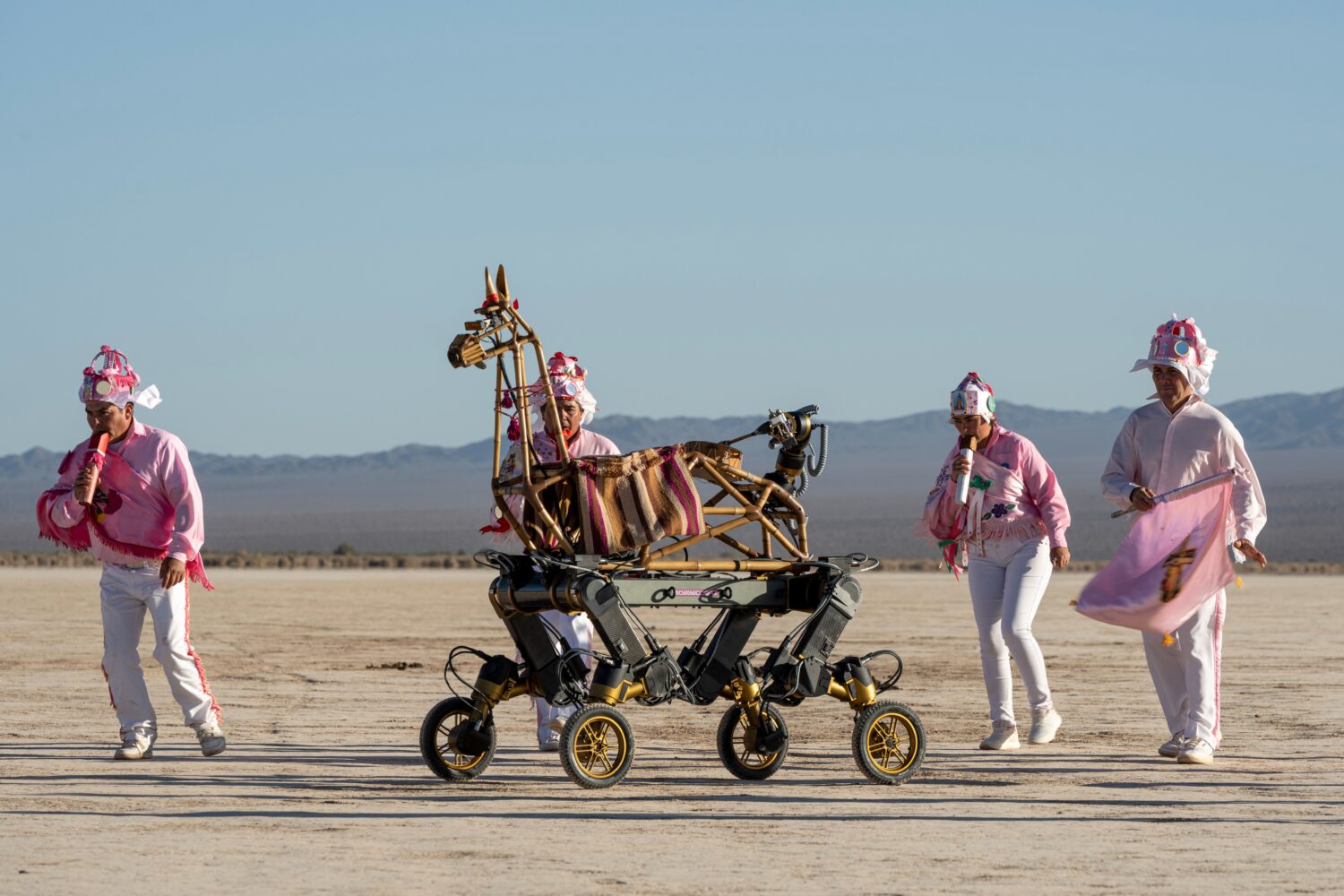
“Giving people access to data most often leaves them feeling overwhelmed and disconnected, not empowered and poised for action. This is where art can make a difference. Art does not show people what to do, yet engaging with a good work of art can connect you to your senses, body, and mind. It can make the world felt. And this felt feeling may spur thinking, engagement, and even action.”
Olafur Eliasson in der Huffpost
Instead of doing things the way they have always been done, most artists see uncertainty as their greatest strength. They not only accept the chaos of the world, they celebrate and embrace it. Artists expect that even the best plans and most compelling visions will not unfold as expected. They consciously seek the unexpected—and make new discoveries.
“It’s not that the ball of an idea […] is automatically destined to move in the direction predetermined by the person who threw it first. The interception of the idea—and the twist it can be given once it is captured between our hard drives as it travels through the world—can fundamentally change its trajectory. Things can fly back and forth for a long time or pick up spins and speeds that take them into completely unexpected orbits,” write Monica Narula, Jeebesh Bagchi, and Shuddhabrata Sengupta of Raqs Media Collective about their artistic practice.
That doesn’t mean that good plans or clear goals are unnecessary. But we shouldn’t turn them into dogma – especially when the world around us is changing so rapidly. It takes courage and openness to allow new insights that challenge our thinking and change our goals.
Of course, it makes no sense to talk about “artists” here as if they all use the same methods or think in the same way. But that is precisely the point: the diversity of their perspectives and approaches is essential for a vibrant, pluralistic, and innovative society—their sharp analyses as much as their romantic gestures, their concrete proposals as much as their wild speculations. Artists create spaces and moments in which we can free ourselves from constraints and dogmas and see the world anew. They enable us to experience ideas emotionally and physically and to let our thoughts wander.
Novels and poems, paintings and photographs, songs and films—they all shape our collective memory of the past, our experience of the present, and our hopes for the future. Art challenges the “monopolization of possible realities,” as author, journalist, cultural philosopher, and teacher Mark Fisher put it. And it is culture that politics follows.
As the most important exhibition of every Ars Electronica Festival, the Prix Ars Electronica exhibition brings together outstanding artistic works that deal with the defining technologies and issues of our time – as a mirror, as an intervention, as a vision. The large-scale thematic POSTCITY exhibition, in turn, invites visitors to experience art physically, emotionally, and intellectually. The Campus exhibition highlights how art universities around the world are rethinking their teaching—and thus actively shaping the future of artistic practice. The collaboration between art and science is exemplified in the LIT exhibition.
Every Ars Electronica celebrates artistic creativity in all its facets and forms of expression. Through exhibitions, performances, and concerts, the festival shows that art is above all an attitude. Art is “not a thing, but a way,” as author and philosopher Elbert Hubbard put it.
Resistance & Collectiveness and Democratic Responsibilities
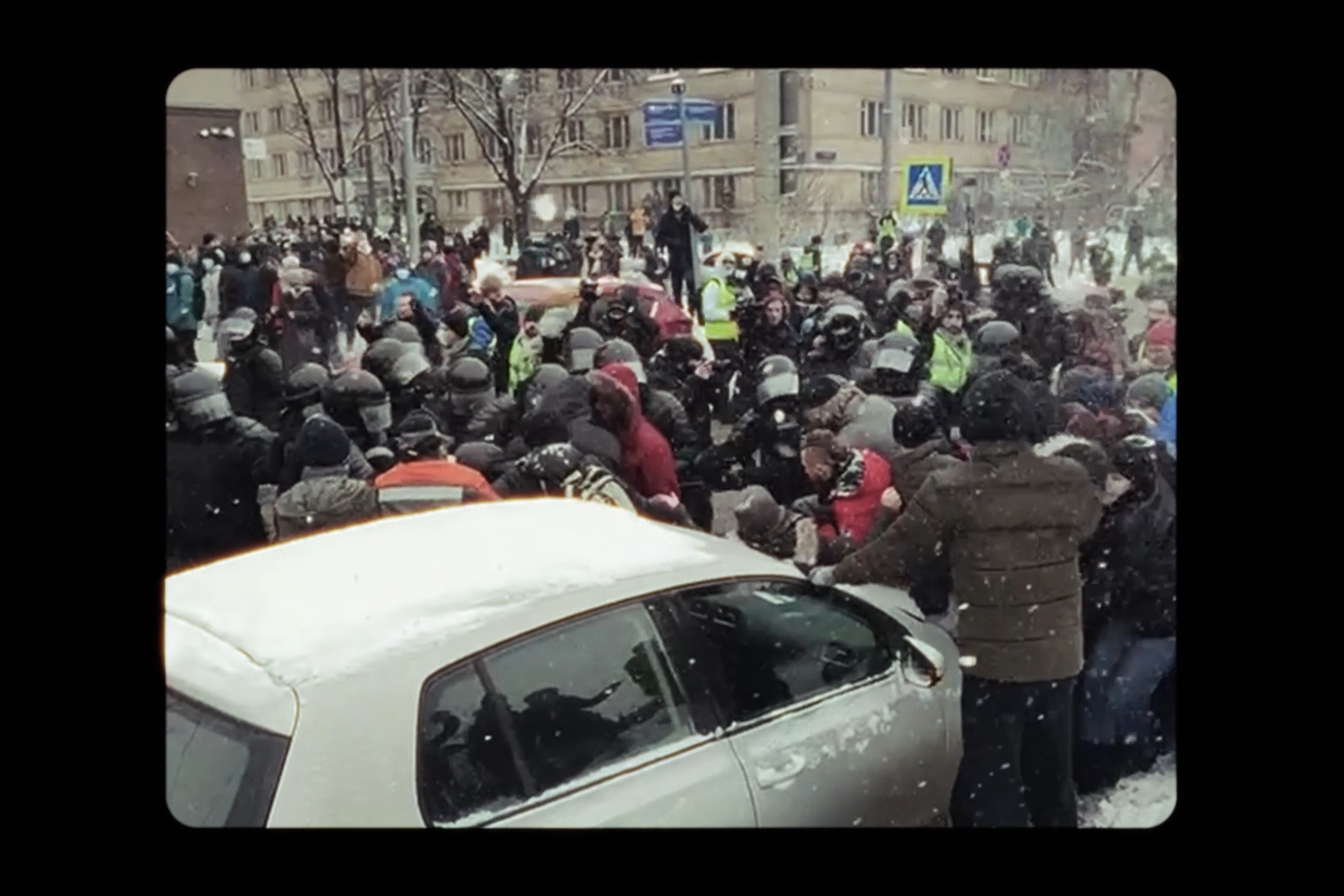
„Human Existence is a constant battle among competing impulses – between selflove and love of others, between the noble and the base, between the desire for freedom and the desire for order and security – and because these struggles never end, the fate of liberalism and democracy in the world are never settled.”
Robert Kagan in The Jungle Grows Back.
Democracy is not a state of being. It is a process that unfolds when we act as citizens. In authoritarian systems, everything emanates from the leadership—usually the leader—and everyone else must follow or remain silent. In a democracy, this dynamic is reversed: we, the citizens, must act, articulate our ideas and desires, and demand that our representatives implement them.
Democracy is complex, slow, and demanding. To avoid a concentration of power, it must be designed to be “inefficient” in a sense. Nevertheless, no other political system we know of offers individuals such a degree of security, freedom, and self-determination—and the possibility of continuously changing course.
Tocqueville wrote that “democracies value both freedom and equality, both personal freedom and social justice.” While inextricably linked, these ideals inevitably come into conflict with one another. “Young people need to understand that conflict is to be expected and is not a sign of a failing system,” historian and educator Paul Gagnon put it succinctly.
Sometimes democracy flourishes; sometimes it doesn’t work, comes under pressure, and needs to be defended. Today, liberal democracy is threatened from outside by authoritarian regimes and from within by extreme forces that declare progress itself to be evil. As a supposed solution, they promote a return to a simple and familiar past—one that, of course, never existed.
That’s dangerous. When asked how he went bankrupt, Mike Campbell replies in Hemingway’s The Sun Also Rises: “Two ways. First gradually, then suddenly.” It’s a very apt description of the collapse of political orders – and of what could lie ahead if we don’t stand up to the forces seeking to undermine or destroy our system. Faster than we think, we could find ourselves in a “competitive authoritarianism” “in which parties participate in elections, but the abuse of power by incumbents systematically distorts the competitive conditions to the disadvantage of the opposition,” as political scientist Steven Levitsky writes. “We are now in a situation where we are all being tested in one way or another—and where we must decide what we stand for,” Barack Obama put it during a discussion event in June of this year.
Artists have always been at the forefront of resistance against authoritarian forces – if only because their work is based on freedom of expression. As Robert De Niro said in Cannes: “Art is democratic. Art is inclusive, it brings people together. Art seeks truth. Art thrives on diversity. And that is precisely why art is a threat […] to autocrats and fascists.”
But fighting against something or someone is not enough in the long run. It is always about working for something and forging coalitions. This means reaching out to other communities, understanding their needs, finding common ground, and developing inclusive visions for the future—exactly what a festival like Ars Electronica has made its raison d’être.
As a society, we form a collective—whether we want to or not. But becoming an active part of a community within this larger whole and working together to move things forward is something completely different. Artists often work together and know what makes this successful. It is important to “disagree when necessary and agree whenever possible,” writes the Raqs Media Collective, looking back on a variety of projects in which “agreements and disagreements did not cancel each other out in a zero-sum game, but led to new levels of connectedness.”
Strengthening the “community muscle” is more urgent today than ever before. Journalist and author Derek Thompson describes how disruptive technologies over the past few decades have led us to spend more and more time alone. Cars, television, smartphones, social media, streaming services: they were all marketed with the promise of bringing us closer together—and yet they have driven us further and further apart. Our social lives are increasingly reduced to our own families, a few close friends, and digital “tribes.” What is disappearing is what sociologists call the “village”—the social fabric that emerges when we talk to our neighbors, join clubs, or attend events such as church services. Today, we hardly ever meet people with whom we share some things but disagree on many others – and we are rapidly losing the ability to communicate across differences. It seems downright cynical when Mark Zuckerberg, CEO of META, whose platforms have contributed significantly to polarization and loneliness, now touts AI bots as our future friends or even romantic partners.
Festivals are more important today than ever before—above all because they bring people together. This is particularly true of Ars Electronica, which appeals to so many different communities that are united by their shared interest in shaping the future, but differ significantly in their perspectives and approaches. By creating temporary spaces where people from different countries, cultures, disciplines, and fields can meet, listen to each other, and discover what they have in common, Ars Electronica becomes a catalyst for dialogue, empathy, and change.
In addition, Ars Electronica presents numerous projects and initiatives that take a clear stand against authoritarianism and oppression—as well as those that strengthen social cohesion. They all combine art, science, and civil society into an inspiring force for freedom and self-determination:
The exhibition State of the ART(ist) highlights the existential threats facing many artists today—threats such as repression, displacement, and ecological disasters. Here, art is an expression of resistance, hope, and survival. The Award for Digital Humanity emphasizes that art functions as a humanistic practice—one that critically reflects on digital developments and points to alternatives for a more just and democratic future. The Citizen Science exhibition, in turn, shows how art, research, and social engagement can intertwine to actively shape an inclusive and sustainable society. The Flood the Zone with Courage campaign explores new forms of protest and civic engagement that combine digital tools with local activism. Special attention is also paid to the next generation: the create your world program creates spaces for young perspectives and creative self-empowerment—as an investment in a future built on openness, participation, and imagination. Eighty years after the end of World War II and in the midst of a new global arms race, this year’s symposium on the festival theme will focus intensively on strategies and narratives surrounding European security, peacekeeping between societies and states, and the role, methods, and strategies of investigative journalism in times of (information) war.
Building Infrastructure, Imparting Skills, Promoting Innovation – Digital Agency & Sovereignty
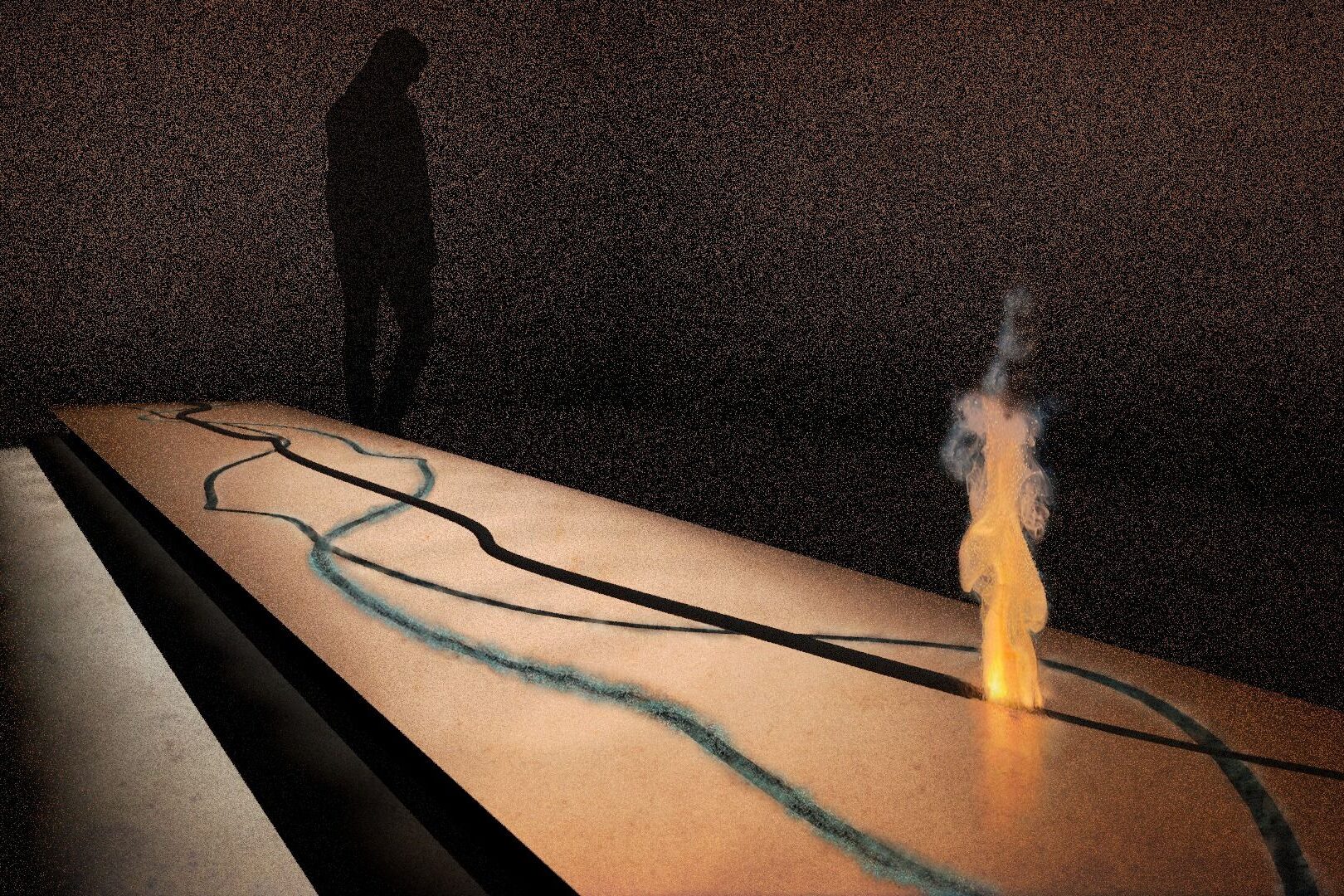
“Now is the time for Europe to be digitally sovereign.”
Angela Merkel, Mette Frederiksen, Kaja Kallas, and Sanna Marin in a joint letter to Ursula von der Leyen in March 2021
The world we have created is permeated by digital technologies. Those who develop, implement, and control these technologies wield enormous power. It is therefore no surprise that digital sovereignty is at the top of the political agenda everywhere. But what does it actually mean to be digitally sovereign?
Essentially, it is about the ability of a state or organization to shape its digital future independently. Such digital sovereignty encompasses a physical level (infrastructure and technology), a code level (standards, rules, design), and a data level (ownership, data flows, use).
The US, China, and Europe are pursuing very different approaches to securing their digital sovereignty. The US is committed to an open digital space in which companies can operate with virtually no restrictions. China is pursuing a heavily state-controlled path. Europe has opted for a model that focuses on individual rights.
These differences are most evident in the way data is handled:
The US supports the free flow of both personal and non-personal data. There is no federal regulation governing the handling of data, although individual states have enacted their own laws.
In China, the Personal Information Protection Law came into force in 2021, setting out rules for the processing and protection of personal data. Non-personal data is classified according to specific criteria such as national security or public interest. The Cybersecurity Law of 2017 and the Data Security Law of 2021 also regulate data transfers abroad.
In Europe, the protection of personal data is considered a fundamental right and has been regulated by the General Data Protection Regulation (GDPR) since 2018. Non-personal data should flow freely, but fair access rules must be observed.
The US, China, and Europe are also taking different approaches to artificial intelligence. After Donald Trump abolished his predecessor’s “AI Bill of Rights,” the US is currently relying more or less on self-regulation by companies. China, on the other hand, has established state-controlled AI governance with measures such as the “Administrative Provisions on Algorithmic Recommendations” and the “National Integrated Circuit Industry Investment Fund.” Europe is pursuing a very comprehensive regulatory approach with the AI Act, the Digital Markets Act (DMA), and the Digital Services Act (DSA). The focus is on human rights, transparency obligations, and analyses for high-risk AI systems.
Regulation is important because it provides a framework for digital activity. However, these rules must also be effective in practice: companies that flout the rules must be held accountable.
But that will not be enough.
Today, the major tech companies are almost exclusively based in the US and China. Furthermore, American and Chinese companies operate more than 90 percent of the data centers used by other companies and institutions worldwide for AI work. “Oil-producing countries have had a disproportionate influence on international affairs; in an AI-driven near future, computing power providers could have something similar, as they control access to a critical resource,” says Oxford professor Vili Lehdonvirta.
This is a major problem for Europe, especially in view of an increasingly fragmented global political landscape. Europe’s strongest lever is its market of 450 million users, which no globally active company can ignore. But apart from this “Brussels effect,” Europe currently has few trump cards up its sleeve.
To achieve digital sovereignty, the EU must therefore build infrastructure, promote innovation and entrepreneurship, digitize public services, teach basic digital skills, and train IT professionals. All of this is set out in the EU’s “Digital Compass” – the political program for shaping the digital decade until 2030.
If this succeeds, Europe will be able to develop, operate, and use its own technologies. If it fails, US corporations will continue to determine our digital future—and will likely cause the same problems they have already caused with social media. Why? Because these companies are financed by venture capital—and therefore must grow constantly. Not because they follow an ideological growth dogma, but because growth brings tangible economic benefits: as long as their price-earnings ratios (P/E ratios) remain high, investors expect expansion and pay high sums for shares. This makes them considerably more valuable. This, in turn, enables tech companies to pay top talent – or competitors – not with scarce cash, but with lucrative stock options, while at the same time getting them to support and promote the narrative of growth. As blogger, journalist, and author Cory Doctorow ([Link]) writes, this creates a “micro- and macro-economy of growth pressure.” In this system, new products and trends do not serve the common good, but rather the logic of permanent expansion.
Artificial intelligence is a powerful technology. But that is precisely why our knowledge, data, resources, and money should not be invested in flattering agents who tell us what we want to hear or in shopping chatbots that recommend products we don’t need. When Microsoft CTO Kevin Scott raves that in the “Agentic Web” everything will run “asynchronously” in the future, he essentially means that Big Tech is climbing to the next level of the attention economy: With the help of AI agents that make decisions, act, and above all shop on our behalf while we are busy doing other things, the tech industry wants to monetize something that has naturally been limited until now: our attention.
As part of Ars Electronica 2025, a whole series of artistic projects will be shown that deal with the consequences of “surveillance capitalism,” a term coined by social psychologist, philosopher, and author Shoshana Zuboff, and ask what role we humans are actually intended to play in the future visions of Big Tech. These projects will be presented in the exhibition on the festival theme. The conference on the festival theme will also address these and related issues.
Numerous lectures, town hall meetings, and workshops will discuss what visions of the future might look like that are based on transparent and purposeful technologies, increase our productivity, promote creativity, and enable scientific progress. Last but not least, the Eurostack White Paper will be discussed. Based on the premise that we need technologies that contribute rather than extract, the Ars Electronica Festival will also address the question of how art and culture can promote Europe’s digital sovereignty.
Agreeing on Environmental Actions & Implementing the Green Deal

„It’s always been a problem, that the most dangerous thing on the planet is invisible, odorless, tasteless, and doesn’t actually do anything to you directly.”
Bill McKibben on CO2
On August 1, 2024, humanity had used up the planet’s ecological resources for the entire year.
Bad enough, this global average obscures the fact that wealthier countries bear far more responsibility. Qatar reached its “Overshoot Day” on February 11, the US on March 14, and Canada on March 15. South Korea exceeded its limit on April 4. Almost all European countries followed suit in April and May, along with Australia, New Zealand, Saudi Arabia, Israel, and Japan. China reached this point on June 1, and the United Kingdom on June 3.
2024 was the hottest year since records began and part of a decade that is considered the warmest ever recorded. What is sounding alarm bells worldwide is hitting Europe particularly hard: no other continent has warmed as much since the 1980s, according to the European State of the Climate Report 2024. The effects are dramatic: we are experiencing extreme droughts, storms, and floods with increasing frequency.
But none of this is new. For decades, scientists have been warning—ever since the report The Limits to Growth—about the ecological and social consequences of our actions: for our health, our livelihoods, and the stability of our societies. It has long been known that when the climate changes drastically in a short period of time, social tensions, conflicts, and migration are the immediate consequences—with profound implications for our civilization.
In the mid-2020s, this is no longer a bleak future scenario—it is reality. Climate change is accelerating, and we can no longer reverse it. But we can slow its momentum, buy time, and learn to deal with its effects. And this is precisely where there is reason for hope.
In 2024, more than 92 percent of global growth in electricity capacity came from renewable energies. A total of 585 gigawatts were added: 42 percent from solar energy, 29 percent from hydropower, 25 percent from wind energy, and the rest from other sources. However, as with resource consumption, there are significant regional differences. Asia – especially China – added 421.5 gigawatts last year alone and now leads the way with a total of 2,382 gigawatts of renewable capacity. Europe follows with an increase of 70.1 gigawatts to a total of 848 gigawatts. North America increased by 45.9 gigawatts to 573 gigawatts. With an increase of only 4.2 gigawatts, Africa has a total of 67 gigawatts. This uneven development shows that the energy transition will also produce winners and losers – and thus a new (im)balance in global power relations.
Overall, global growth in renewable energy capacity was 15.1 percent in 2024. This is encouraging, but it is not enough. To triple global green electricity capacity by 2030, annual growth of at least 16.6 percent is needed. Whether this will be achieved is questionable, especially in light of political forces that deny climate change and continue or return to a “drill, baby, drill” approach.
Our way of life has always depended largely on the resources and, in particular, the forms of energy available to us. As long as energy had to be generated with great effort (labor), products were expensive to manufacture and purchase—and therefore had to be durable. This changed with the advent of petroleum. Suddenly, cheap energy was available in abundance and goods could be produced cheaply and in large quantities. This gave rise to the throwaway society with precarious jobs, growing inequality, and an escalating ecological emergency. We are now at the dawn of a new era of energy production, and it remains to be seen how this change will shape our economy and culture.
But we don’t just need new forms of energy. We need to tell fundamentally new stories about the future—stories about clean air, less noise, and healthier food, but above all about secure livelihoods, fair jobs, and social equality. We need stories about a future that does not rely on more cheap things that exacerbate our crises and do not make us happier, but rather produces things that actually improve our lives.
A festival like Ars Electronica can contribute to this. It not only brings together a global network of experts and promotes exchange on questions about the future. Above all, it serves as a prototypical platform where people from all over the world can draw inspiration and motivation from those who are already working on green solutions—and return home with new drive to take action themselves.
Preparing for the Unpredictable – Education in the 21st Century
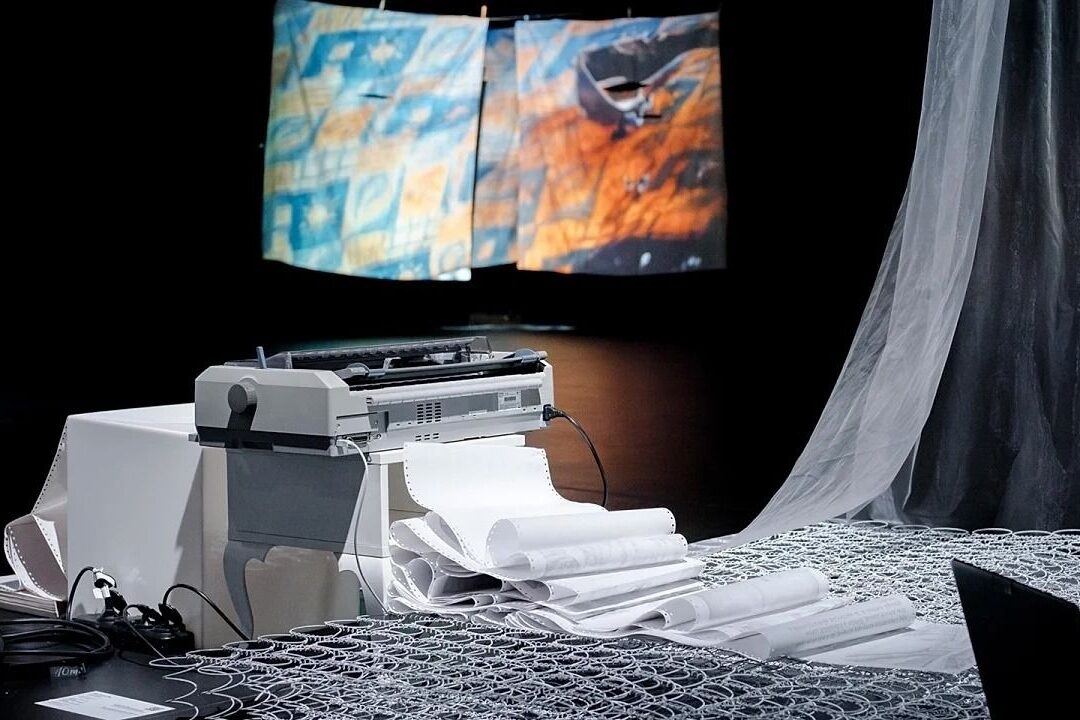
“Give the pupils something to do, not something to learn; and the doing is of such a nature as to demand thinking; learning naturally results.”
John Dewey
In the mid-2020s, we are less able than ever to predict what our world and our lives will look like in the future. What does this mean for our education system? What should it actually achieve if we don’t know what skills will be in demand in 10, 15 or 20 years’ time? How do we prepare ourselves – and, above all, the next generation – for the unpredictable?
“People who have become so-called routine experts often fall into carryover mode – they apply old knowledge and familiar rules of thumb to new situations. And that’s when they start to fail,” says author Maggie Jackson. Rebecca Winthrop, an expert on global education, emphasizes that education is much more than the mere transfer of knowledge: “It’s about learning to live with others, getting to know yourself, and developing the flexible skills needed to navigate an uncertain world.”
In a dynamic world, it is not primarily factual knowledge that counts, but the willingness and motivation to continuously learn new things. In times of uncertainty, it is these qualities that make people creators and trailblazers. To promote this, education must create spaces where children, young people, and adults can experience how fulfilling it is to explore, discover, and solve problems creatively. “Children need to find their spark,” says Rebecca Winthrop. They need opportunities to engage intensively with something, overcome challenges, and grow through difficult tasks—especially at a time when artificial intelligence seems to be taking more and more work off our hands with seemingly little effort.
So what should we learn—and why and how? The Ars Electronica Festival 2025 will address these questions in a series of lectures and discussions that bring together perspectives from education, art, science, and business.
Change Course
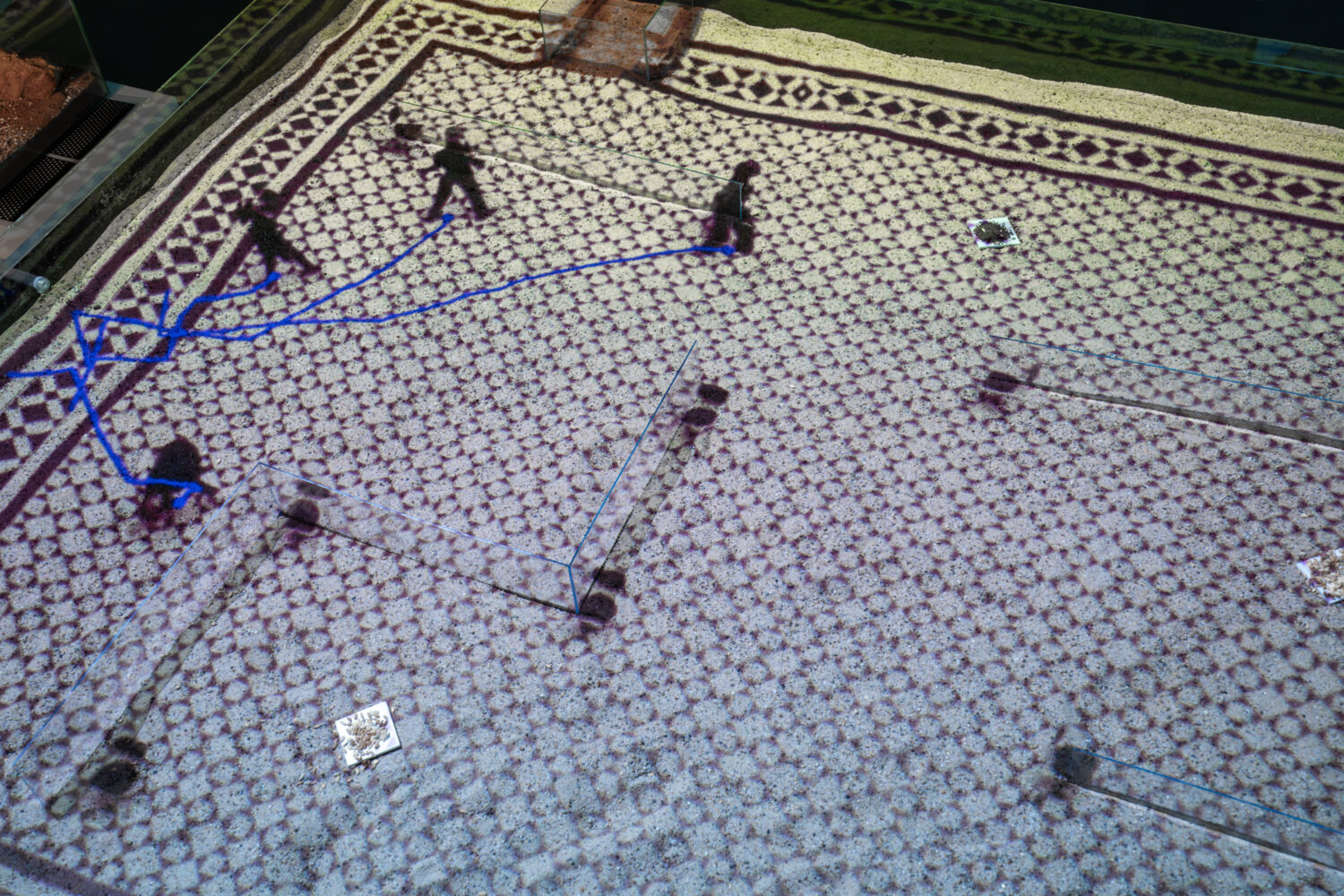
If we want people to face the future with confidence again, we must learn to see it as an opportunity. We need inspiring images and stories of a future in which we want to live—one that is not characterized by limitations and scarcity, but by possibilities and abundance. And we must create the institutions and ecosystems that will make these visions a reality. “To get the future we want, we need to build and invent more of what we need,” say journalists and authors Ezra Klein and Derek Thompson.
Progress has never been linear and is never guaranteed. Nothing in the course of human history has been or is inevitable. If life has improved, it is only because people have made decisions, taken responsibility, and changed the world—not because things would have turned out better on their own. Educator and historian Paul Gagnon said that a look at history is enough to “develop a deep understanding of how difficult it is to preserve civilization or improve human life—and how we have nevertheless succeeded time and again.”
Every generation must drive progress forward in new ways. Today, we too are faced with the question of whether to accept the status quo or actively steer things in a direction we consider desirable and necessary.
But how can we achieve this?
MIT economists Daron Acemoglu and Simon Johnson write that we must question dominant narratives, break down existing norms, strengthen countervailing forces, and find political solutions. As Europe’s largest platform for art, technology, and society, Ars Electronica wants to contribute to this collective effort: We try to ask the right questions, promote dialogue, forge new alliances, inspire people to ask themselves, “What if?”—and encourage them to take action.
This commitment shapes not only our annual festival, but all our activities throughout the year. Since its founding in 1979, Ars Electronica has become a creative ecosystem dedicated to a central question: What kind of future do we want to live in—and how can we shape it?
Forty-six years after its founding, Ars Electronica is many things: a home for artists whose work is supported and made visible here; a platform for activists and initiatives that connect art, science, and technology to improve our everyday lives; A space for education that helps students, job seekers, and lifelong learners to critically engage with technology and shape their own future. A laboratory and workshop where prototypes and spaces for experimentation are created. A creative engine that helps companies think beyond profit and consider meaning and impact, and help shape change.
We host an annual festival, curate exhibitions, organize conferences, issue open calls, conduct artistic and scientific research, develop prototypes, design immersive experiences, and create spaces where people can meet—and ideas come to life.
We do all this with and for artists, scientists, technologists, activists, educators, institutions, companies, political decision-makers, and the general public.
We know that we cannot change the course of events on our own. But perhaps we can motivate our visitors to join a project in their neighborhood. Perhaps we can encourage young people to believe in their ideas and create something of their own. Perhaps we can inspire CEOs to align their companies in such a way that they not only generate profit but also create social value. Perhaps we will give politicians an impetus to rethink their role – and their legacy. And perhaps we will help people realize that they – that we all – can indeed play a role in shaping our future.
At least that is our hope.
And who knows?
“What lies ahead seems improbable. Once it has passed, it seems inevitable,” writes Rebecca Solnit.
The Ars Electronica Festival 2025 will take place from September 3 to 7 in Linz under the theme “PANIC – yes/no.” For more information, please visit here.
